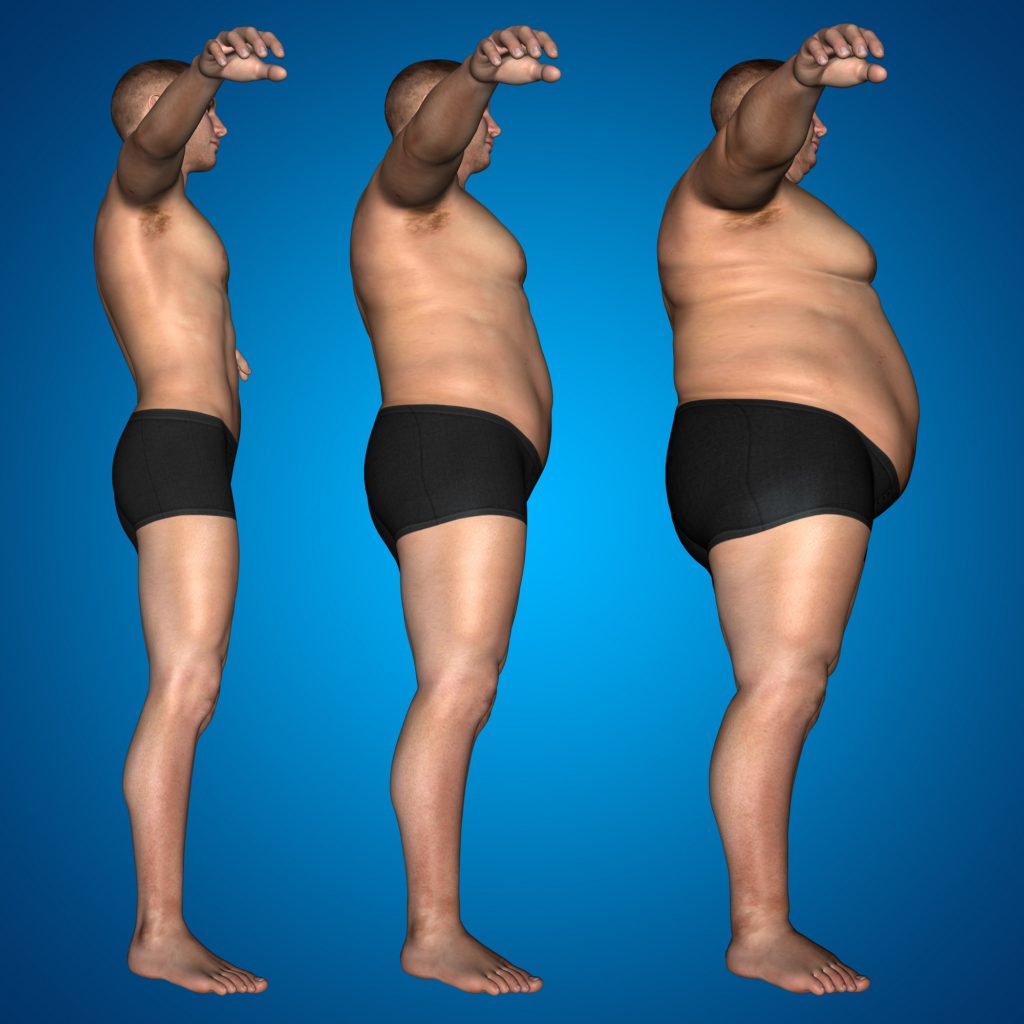Heartburn and food regurgitation are difficult to control when you are overweight. The constant pressure over the stomach forces gastric juices to escape into the esophagus. Large meals consumed on a daily basis and especially at night stress the gastro-esophageal junction area and promote acid reflux. A large and dilated gastric fundus contributes to frequent transient lower esophageal sphincter relaxation episodes leading to increased gastric content reflux into the esophagus. If you are overweight and you suffer from acid reflux disease or GERD, Houston Weight Loss Surgery Center and Houston Heartburn and Reflux Center have a solution for you. As a specialist in both acid reflux disease and weight loss surgery, I have developed a unique protocol to address GERD in overweight individuals living in Houston and surrounding communities.
There is a strong relationship between GERD and obesity. One cannot address GERD while ignoring obesity and vise versa. Weight loss, healthy food choices, and small meals serve both the overweight and heartburn patient. Nissen fundoplication, gastric sleeve surgery and Rous en Y gastric bypass all have the gastric fundus in common. Whether the gastric fundus is wrapped, excised or bypassed the end result is the same: weight loss, decreased meal size, early satiety, and lower Ghrelin levels. In addition, there is decreased acid reflux. A properly constructed gastric sleeve (no narrowing at the incisura and no retained gastric fundus) effectively diverts gastric content and acid away from the esophagus. Nissen procedure and gastric bypass surgery have traditionally been the most reliable treatments for GERD. Nissen surgery creates an effective antacid barrier with excellent long-term results. Gastric bypass is equally effective with the added benefit of weight loss in the overweight patient. Both gastric sleeve and gastric bypass are great solutions for GERD and obesity. Patients who are more than 50 pounds overweight and who suffer from multiple obesity related comorbidities like type 2 diabetes should strongly consider weight loss surgery over Nissen fundoplication for treatment of GERD. Nissen procedure is associated with some weight loss but not enough when compared to gastric sleeve surgery or gastric bypass procedure. Neumayer et al published a study in 2005 in Surgical Endoscopy showing significant weight loss after Nissen fundoplication. He showed persistent weight loss of around 9 pounds at one year after Nissen procedure in a group of patients with an average starting BMI of 27.6. One would expect more weight loss with a higher starting BMI, however, Nissen fundoplication is not a bariatric procedure. Twenty to thirty pound weight loss is not enough in our obese patient population. Furthermore, hiatal hernia repair and complete circumferential distal esophageal dissection are quite challenging in the obese patient. Indeed, it is almost impossible to properly release the distal esophagus in the setting of a large liver and thick abdominal wall. Therefore, hiatal hernia repair, like any other hernia type, is best performed after weight loss is achieved. Our approach to hiatal hernia repair in the obese patient is different from most practices in Houston. I prefer not to violate the hiatus in an obese patient. I completely avoid an anterior crural approximation since it has no benefit. I also consider a posterior hiatal repair without esophageal dissection and mobilization to be associated with a high recurrence rate. For these reasons, I leave the hiatal hernia alone during gastric sleeve or gastric bypass procedure. One year later, I come back to fix it. Of course, for small hiatal hernias one can easily repair them concomitantly with the weight loss procedure. However, one may argue that there is no need to fix a small hiatal hernia in the setting of gastric sleeve surgery. I completely avoid repairing a small hiatal hernia in a gastric bypass case as it has no benefit whatsoever to the patient.

